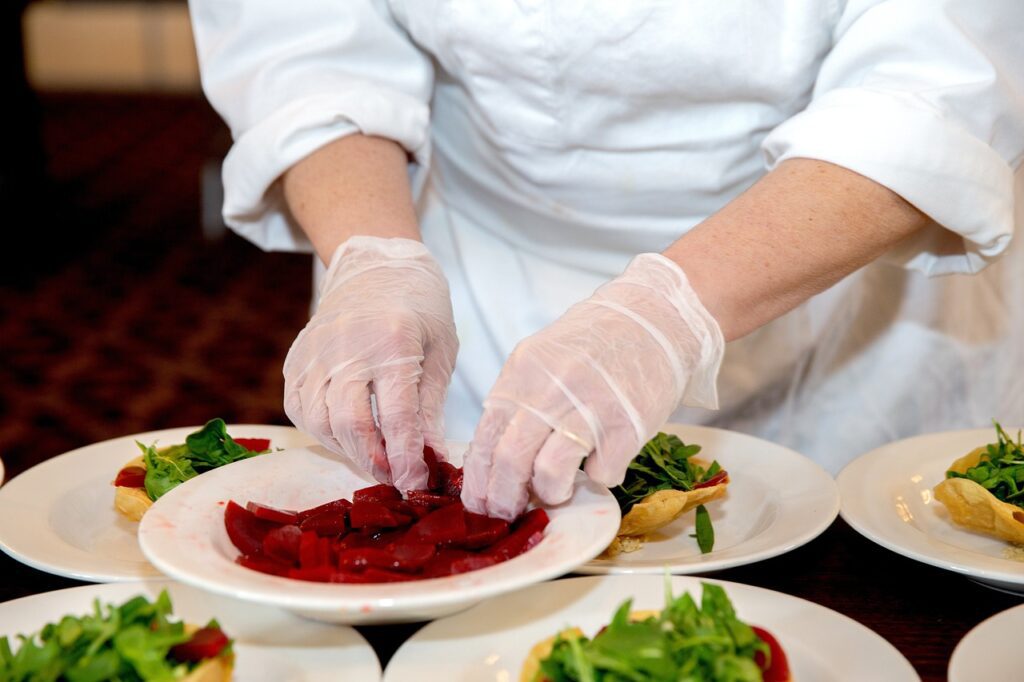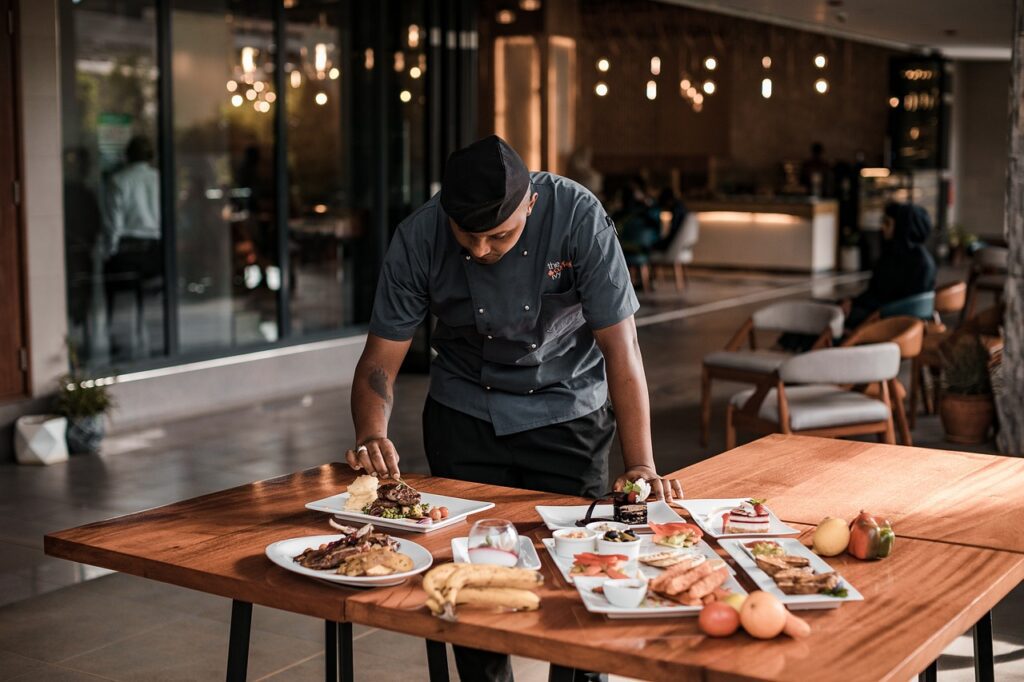What Exactly is a Chef?
An online dictionary aptly characterizes a chef as the culinary captain steering the ship of a restaurant or hotel’s kitchen. Their role is far more multifaceted than what’s often portrayed in popular culture – they aren’t just confined to the sizzle of the pan or the precision of knife cuts. A chef’s world is broad, painting a canvas that goes beyond mere cooking.
Their responsibility starts right from curating the menu, which requires an in-depth understanding of ingredients, culinary trends, dietary needs, and the unique tastes of their clientele. This involves researching, experimenting, and oftentimes collaborating with other kitchen staff or even with local farmers and suppliers to ensure the freshest and most suitable ingredients.
In addition to crafting the menu, a chef plays a pivotal role in ensuring the entire kitchen operates like a well-oiled machine. This entails training junior staff, managing kitchen finances, maintaining health and safety standards, and often liaising with front-of-house teams to ensure the dining experience is seamless from kitchen to table.
Furthermore, as the culinary world evolves, chefs also find themselves wearing hats of sustainability champions, nutrition advocates, and sometimes even as public relations professionals, engaging with media and customers alike. They are the heart and soul of the establishment, constantly pulsating with passion, ensuring every plate that leaves the kitchen is a testament to their dedication, expertise, and vision for culinary excellence.
Is Becoming a Chef Just About Cooking?
Indeed, the role of a chef transcends the confines of the kitchen stove. It’s not merely about following recipes to the letter; it’s about concocting culinary tales with each dish, intertwining tradition with innovation.
Every ingredient a chef selects narrates a story; every spice added imparts not just flavor, but character to the dish. A chef, with their seasoned hands and discerning palate, creates magic that transforms raw ingredients into gastronomic masterpieces. Their craft is not just to satiate hunger, but to evoke emotions, evoke memories, and transport diners to different parts of the world, all through the medium of food.
Furthermore, in today’s fast-paced and interconnected world, chefs also need to be responsive to global culinary trends, dietary needs, and sustainability concerns. They are often expected to be avant-garde, experimenting with new techniques, and playing with textures and flavors, all while staying true to their culinary roots.
In essence, a chef is an artist, a scientist, and a storyteller, all rolled into one. Their canvas is the plate, their paints the myriad ingredients, and their brushes the plethora of cooking tools. So, the next time you enjoy a dish at a restaurant, remember, it’s not just food you’re experiencing, but a chef’s vision, passion, and artistry.

What Does It Mean To Be a Stellar Chef?
Behind the delectable dishes and the intricate art of plating lies the world of chefs, a world far more complex and challenging than one might anticipate. If your understanding of restaurant food preparation is shallow, then the multifaceted role of a chef might elude you. It’s not a walk in the park. A chef juggles multiple responsibilities. Presentation, consistency, and mastering the taste of every dish is an art that takes immense patience, skill, and persistence. Furthermore, a chef is akin to an orchestra conductor, harmonizing a plethora of ingredients to create a symphony of flavors that pleases the palate.
The Evolution of Culinary Arts
The culinary world has evolved tremendously over the years. With globalization, chefs today have access to an array of ingredients from every corner of the world. This evolution has brought forth a responsibility for chefs to learn and innovate continuously. They are expected not only to be knowledgeable about diverse cuisines but also to be visionaries in fusing them together, crafting unique culinary experiences for their patrons.
Are Creativity and Skills the Only Requirements?
While creativity is a chef’s right hand, multitasking under pressure is their left. A typical day for a chef involves not just cooking but also responding to spontaneous demands from both the kitchen team and customers. Meeting these on-the-spot challenges requires adaptability and a clear head. But there’s more. An exceptional chef possesses a deep knowledge of ingredients, an understanding of nutrition, and a commitment to sustainability. The art of gastronomy requires continuous learning, as the culinary landscape keeps changing with new techniques, tools, and trends emerging.
Beyond the Kitchen
It’s crucial to remember that a chef’s role isn’t restricted to the kitchen alone. They are leaders responsible for mentoring and guiding their team, ensuring hygiene standards, managing inventory, and sometimes even stepping into the realm of business by making critical decisions related to the restaurant’s operations.
Is Passion the Key Ingredient?
Absolutely. Passion fuels every dash of spice and every stir in the pot. Facing daily kitchen pressures and challenges becomes tenable when you adore what you do. Every learning opportunity, every hurdle, and every critique are stepping stones. Embrace them, and culinary mastery is yours for the taking. Moreover, passion is infectious. When a chef pours their heart into their creations, it not only elevates the taste but also creates an experience that diners carry with them. The stories, the memories, the emotions—all conjured up by the sheer dedication and zeal of the chef.
In Conclusion
Being a stellar chef is a blend of artistry, resilience, leadership, and never-ending passion. It’s a journey of perpetual learning, adapting, and growing. So, the next time you relish a dish at a restaurant, take a moment to appreciate the expertise, hard work, and love that the chef has infused into it.

